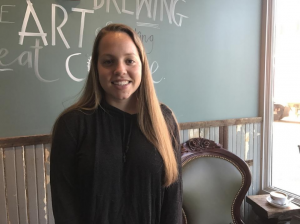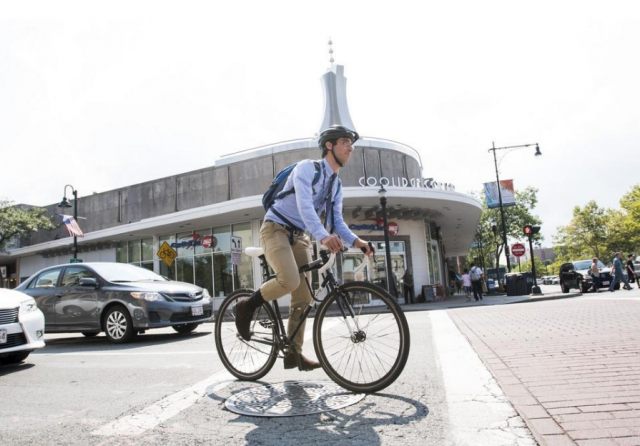While some youngsters learn about the democratic system through mock government clubs, several Brookline High School students are getting firsthand experience with the inner workings of town government.
Students in the school’s Environmental Action Club have filed a warrant article asking Town Meeting to pass a resolution that would allow a gas tax to fund transportation infrastructure improvements around town.
In the two-part resolution, the students are asking the town to support state bill S.1551, “An Act Relevant to Regional Transportation Ballot Initiatives,” which is pending a vote. If passed, the bill would allow communities to raise taxes to fund transportation projects.
Should it pass at the state level, any related tax hike would still have to go before Brookline voters for approval.

If the state passes the bill, part two of the students’ resolution would have the town add a 3-cent tax to gasoline costs. The revenue generated from the tax would go to infrastructure improvements like new bike lanes, according to senior Lily Bermel.
Turning 18 this month, Bermel will be the sole petitioner for the article when it goes before Town Meeting in May.
The idea for the resolution spawned from what the students saw as a need for better access to alternative transportation to and from school.
According to Bermel, many students do not bike to school because their parents feel it is unsafe.
“This resolution was all about making it safer for high schoolers who bike to school,” Bermel said.
An avid biker, junior Nadia Vitek would regularly bike to school from her home near Summit Avenue, until she tore her ACL in an unrelated incident.
Vitek’s route to school took her mostly down Washington Street, which she said was fairly safe because of its bike lanes. However Vitek, like Bermel, said she knew many students who could not bike to school due to safety concerns.
More bike lanes and bike boxes would help with that, according to Vitek.
“I think that would be great; the bike lanes that were added up on Beacon Street were a huge relief,” she said.
Though the original purpose was to help students bike safely to school, the resolution could benefit the entire community, according to Bermel.
“It’s all about helping people and helping people to be outside,” said Bermel.
The students hope the resolution could help the town pursue projects including Complete Streets, a state initiative to improve sidewalks and roadways to enhance safety for bikers, pedestrians and motorists.
The possible infrastructure improvements would not be isolated to bicyclists.
According to Bermel, funds generated from the 3-cent tax could also be put towards projects such as improving traffic flow for buses and adding rain covers at train and bus stops.
“The infrastructure would make it safer, more accessible and more convenient [for everyone],” Bermel said.
Going through the process of writing, finalizing and filing a warrant article is no simple process.
Though the students came up with the idea themselves and wrote the resolution, Town Meeting member Tommy Vitolo helped them navigate the proper phrasing and government process.
“I’ve never done it before so it was really cool,” said Bermel.
The students presented their resolution to state legislators on April 10. Though a formal presentation, Bermel said she looked at it as a practice run for Town Meeting as she’ll be the sole petitioner.
At a town public hearing April 12 that followed the presentation to the state, two community members spoke against the resolution. According to Vitek, the hearing was a bit of a reality check for the students because it showed them that Town Meeting might not go “their way.”
With Town Meeting still ahead of the students, Bermel is encouraged. She said that her experience going through the public process has been a positive one.
The experience has shown the students how much they can get done within local government.
“I was really proud of the finished warrant article because I didn’t think I would be able to help at all, but I did help,” Vitek said.

















